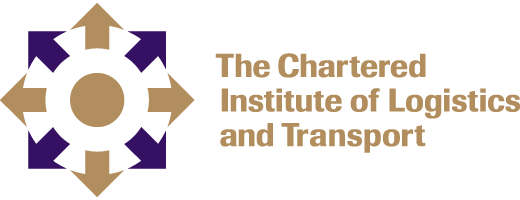Of all the challenges brought about by Covid-19, supply chain disruption has been one of the most prominent. It has impacted, and continues to impact, businesses and consumers, with all manner of goods struggling to get from producers to those who need them.
That supply chains would be adversely affected by the pandemic was, of course, no surprise. As soon as news of the virus surfaced in Wuhan, it quickly became apparent that the knock-on effects would be vast. Manufacturing plants were forced to stop or limit production, transports systems shut down and cross-border movement became difficult, to say the least. At the same time, many businesses became inactive, while consumer behaviour changed radically leading to some markets exploding while others collapsed.
In the UK, headlines abounded of the seeming impossibility of getting hold of bread flour, hand sanitiser or even toilet toll. The reason was twofold: in some cases, manufacturers and suppliers simply could not produce items quickly enough to meet demand; in other cases, the issue was further down the supply chain, with packaging and logistics the main obstacles preventing much-wanted products from reaching customers.
CILT UK have shared this article by Atul Bhakta, CEO, One World Express who considers Has the pandemic forced businesses to reassess their operations for the better?
Covid-19 forces introspection
For each individual business, the question over the past six months has been: can we get our hands on the goods we need to operate as normal, and can we get our product into the hands of paying customers? It may sound simple, being as these are the fundamentals of any company built on the sale of physical products. However, it is easy for businesses to take such matters for granted. After all, at the start of 2020, few businesses would have foreseen entire trading networks grinding to a halt.
To delve further into this issue, One World Express recently commissioned a study of over 500 UK businesses. We explored how businesses have had to adapt their own operations, as well as the ways in which they have responded to supply chain disruption.
First, the research found that the majority (56%) of British companies have had to pivot the way they deliver their product or service, because they were unable to sell in the way they had been accustomed to selling. The most obvious example here is a high street retailer that had to quickly pivot to offer online orders and home deliveries during the lockdown period.
A further 34% of business leaders said the pandemic had meant that they could no longer sell to their usual customer base. Again, a common example of this was food producers who usually supplied restaurants with ingredients; when restaurants closed, they had to flip their B2B sales model with a direct to consumer alternative, delivering high-quality fresh produce straight to people’s homes.
As for supply chains, the study laid bare the level of disruption caused by Covid-19. It showed that 36% of UK businesses have witnessed one or more company close down as a result of the pandemic. Further, 42% said they had been forced to source new merchants, vendors or partners as their existing options were no longer viable.
Clearly, the level of upheaval has been severe. Millions of businesses have had to simultaneously adapt their sales model whilst also reshaping their supply chain in an attempt to keep selling or retain cash flow.
Taking positives
However, the disruption to supply chains should not be seen as overtly negative. In reality, it has forced businesses to reassess their operations and the partners they work with; it has made them consider how to improve efficiency or develop a more effective business model.
This, too, was uncovered in the survey. Of the 500 companies we spoke to, 41% said that in forcing them to find new partners the pandemic has actually led them to alternatives superior to those they had previously worked with. Similarly, 35% said they have made cost savings by sourcing cheaper suppliers to those they had relied on before the lockdown period.
Overall, 57% of UK businesses believe the pandemic has provided the incentive they needed to make positive changes to their business model. What is more, a slim majority (52%) are confident that they will see positive growth in their turnover in the second half of 2020.
In what has been an incredibly testing year for the businesses around the world, the statistics above provide reason for optimism. The research demonstrates that the UK private sector is actually seizing new opportunities in the midst of the pandemic chaos. No longer able to operate in the way they did for so long, businesses have been forced into change – and, evidently, for many this will be lasting change for the better. In amongst all the negative news surrounding the private sector, this is something to be welcomed.
Entrepreneurship and leadership
They say that necessity is the mother of invention. Like most clichés, the phrase is built on a fundamental truth: it often takes an extreme situation or lack of alternatives to force an individual or organisation into drastic change. The coronavirus pandemic is and will be a lasting testament to this concept. Many businesses would openly acknowledge that the past six months have been the hardest in their history; but the shockwaves created by the virus will also trigger a wave of innovation that will improve organisations and the way they operate.
From empowering remote working and encouraging investment into technology, through to forcing the reassessment of supply chains and pivoting to more effective sales models, Covid-19 has prompted changes within businesses that would otherwise have taken many months, if not years. It has placed pressure on entrepreneurs and business leaders, exposing their vision and ability to adapt to challenges. To that end, the brightest minds and strongest businesses will shine through in the months ahead.
This is an example of industry analysis from the UK which we are sharing as part of our global best practice resource to help you think about and determine appropriate responses locally.

